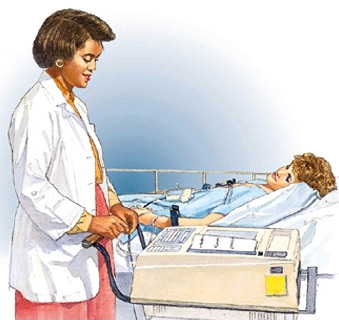Cardiac Imaging » Electrocardiogram (EKG)
The ECG (also known as EKG) is a test that records electrical signals from your heart onto a paper strip. The pattern of these signals can help tell the doctor whether your heart is normal, under stress, or experiencing electrical problems, strain, or damage.

Getting Ready
- Wear loose, comfortable clothing that allows easy access to the chest.
- Allow enough time before your ECG to check in. You will likely need to fill out paperwork before the test.
What Happens During an ECG
- You will be asked to remove your clothing from the waist up and to put on a gown. You will then lie down on your back.
- Electrodes (small pads) are placed on your chest, shoulders, and legs.
- The electrodes record your heart rhythm and any change in your heart’s signals that occurs during the test.
- After a few minutes of recording, the healthcare provider will remove the electrodes. The ECG takes about 10 minutes.
After the Test
- You can resume your normal activity.
- The results are sent to your doctor.
- Be sure to keep your follow-up appointment.


